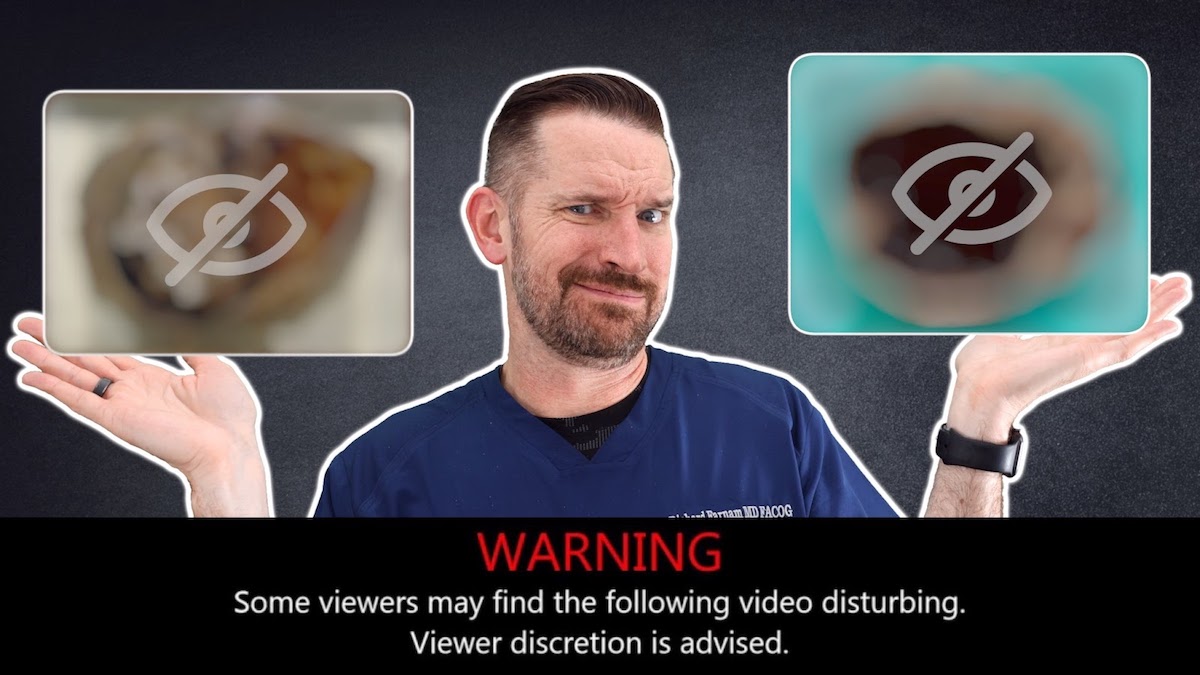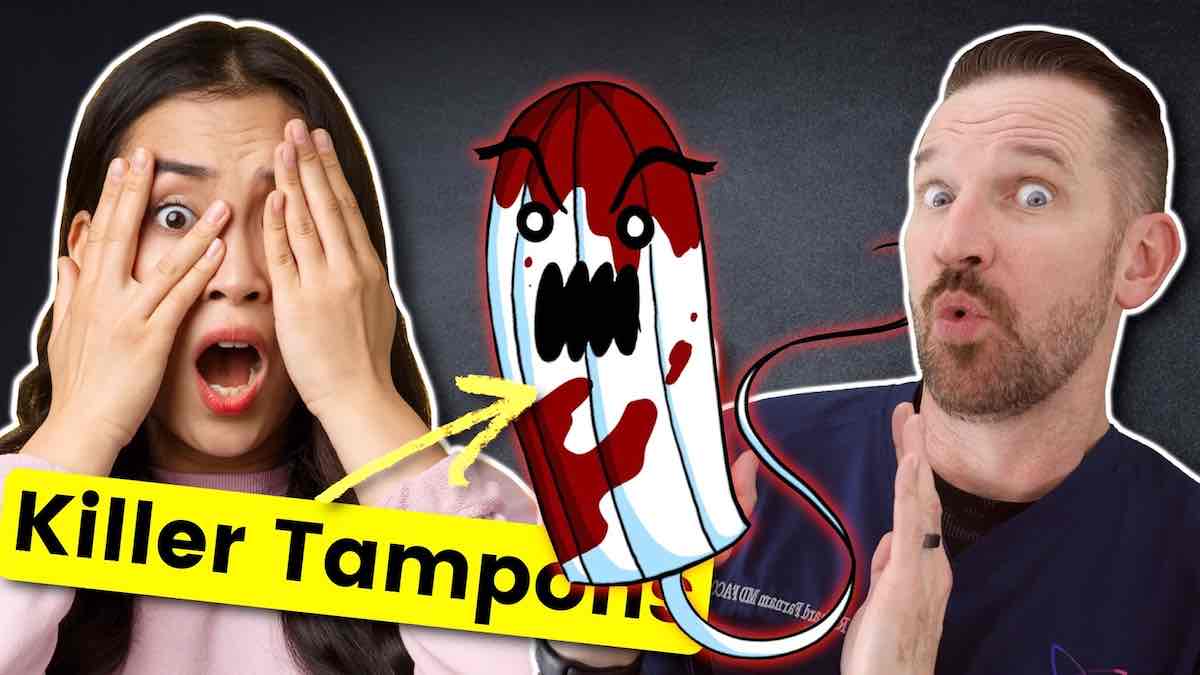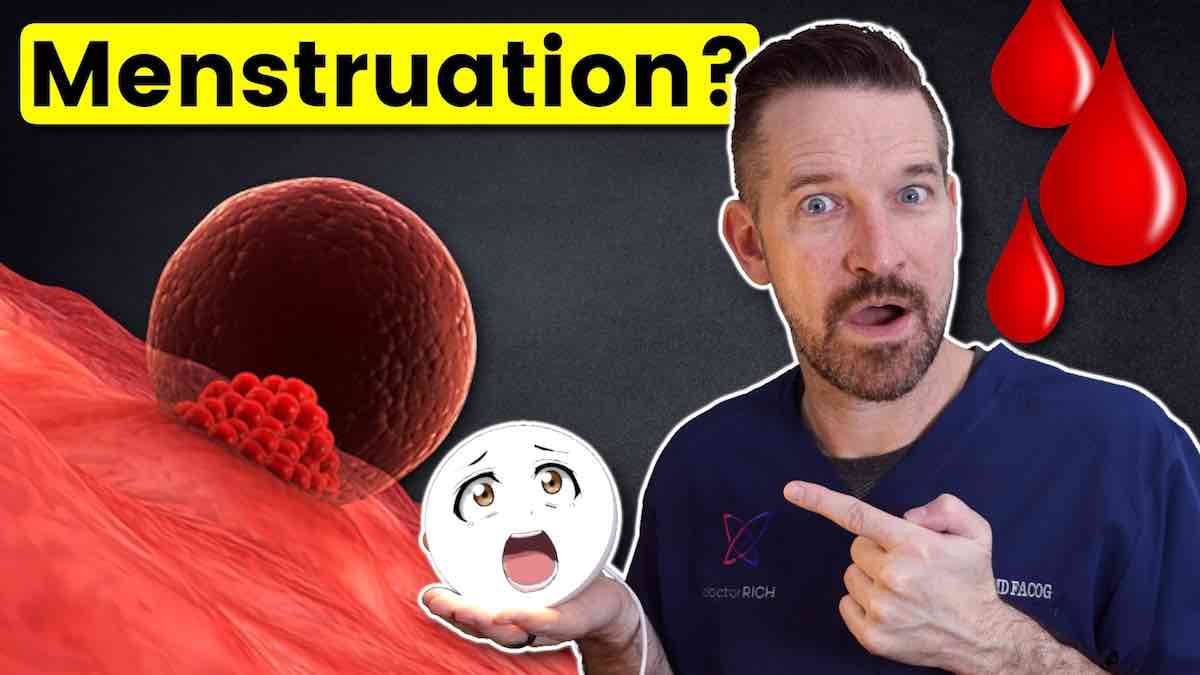Welcome back to the Doctor Rich channel! Today, we continue our hysterectomy stories with Anna Caldarella.
Anna:
Hi!
Doctor Rich:
Thanks for coming. We’re going to hear from Anna — and bonus feature! — we’re going to do some hysterectomy myth busting! And stick around to the end to find out what happens if you wait too long for a hysterectomy,
Anna:
It’s not good.
Don’t have time to read this post? Watch the video here instead!
Doctor Rich:
Hysterectomy is the removal of the uterus. There are many ways the surgery can be done — through big incisions, or little tiny robotic incisions. Our preference is to do robotic surgery as it allows the majority of patients to have a minimally invasive outcome. And you can check out our hysterectomy primer in this video!
So what are the common reasons a woman would need a hysterectomy?
Well, the most common is fibroids. There are other types of conditions that lead to severe bleeding and pain (such as endometriosis and adenomyosis). And although not quite as common, cancer can also be a reason for hysterectomy.
Anna, tell us about your experience.
Anna:
I suffered for a very long time with severe endometriosis pain — and I just could never even get diagnosed for it. I was just treated like I had cramps — like I was whining and complaining all the time! I was told that I would need to have an exploratory surgery to actually see if I had it, and THEN I would have to go back in after the fact and have the surgery.
Doctor Rich:
This is actually (sadly!) not that uncommon. The average patient has as many as three to seven opinions, and as many as three surgeries before they find an expert who’s trained in the excision (or the advanced removal) of endometriosis. And unfortunately, even though it’s extremely common (one in ten women have the condition) — it’s often underdiagnosed, misdiagnosed, not diagnosed, and many women end up suffering for years.
Anna:
And you have like the misconception that you just need to wait till menopause, “Just wait till you go to menopause — you’re almost there!”
Doctor Rich:
But I mean, is that a reasonable request to wait five, ten, fifteen years?
Anna:
No — not as simple as the surgery is! It’s just too easy!
Doctor Rich:
So what were your fears — or what were your concerns going into the surgery?
Anna:
Well, I just wasn’t sure what was going to happen. I didn’t know if I was going to be able to keep my ovaries — I just had no idea what was even wrong with me.
After years of just not being able to be diagnosed (and not being able to handle the pain anymore), you — within two minutes — told me that I DO have endometriosis! And like my fears of losing my ovaries — which had kept me from going in and ever dealing with it — it was better just to keep them
Doctor Rich:
So with the endometriosis disease, everybody can experience different symptoms (and they’re usually all bad). So tell me about your worst day with endometriosis.
Anna:
My worst day was on my sister’s 40th birthday trip. We were on vacation, and (eight days early) I was struck down by the most horrific period that I have ever experienced in my life! I was in Urgent Care — vacation ruined — just being trapped. And like hiking — I’m a backpacker, and I’d be out in the wilderness carrying disposable heating pads with me. Like, the last thing I should be worrying about is fifteen heating pads when I’m off in the wilderness for three days! I should just have my food, but I was carrying that stuff around the wilderness.
Doctor Rich
You had to plan your life…
Anna:
Yes. It was just planned around pain — and you don’t know when it’s gonna hit, you don’t know how it’s gonna hit…
Doctor Rich
So tell me about the hysterectomy experience, and how that immediate postoperative experience was.
Anna [laughing]:
You have a magic little pain ball! There’s a ball that’s connected to a tube that goes and wraps around inside of you — and you don’t feel any pain! And it’s in there for four days.
Doctor Rich:
“The Magic Pain Ball!” I’m going to start calling it that from now on!
Anna:
It’s magic!
Doctor Rich:
It’s called the ON-Q Pain Pump, and essentially just delivers local anesthetic right out of the surgical site continuously (for up to three days).
Bonus feature! Ding, ding, ding, ding! So now we’re gonna do MythBusters for the hysterectomy! So some of these topics we’ve touched on already. One commonly cited risk about having a hysterectomy is “It ruins your sex life, and decreases your libido (or your sex drive).” What’s been your experience?
Anna:
We have no problems there.
Doctor Rich [laughing]:
Well said! And you can check out Michelle’s video for more details on that one!
So the verdict on that one — false!
A second commonly talked about risk for hysterectomy is that you go into menopause. You get hot flashes, night sweats, vaginal dryness, mood changes, hair loss… How are we doing with that?
Anna:
I have no issues with that. I’m not in menopause. I have my ovaries.
Doctor Rich:
Right! And we had mentioned that — we talked about keeping, preserving, or removing the ovaries. And here’s the benefit guys — you’re not experiencing those symptoms! Now every woman eventually (on average at 51.8 years of age) will go through menopause. But there’s no reason — and you don’t think you’ve compromised your outcome? You feel like you’re doing, doing well, keeping your ovaries?
Anna:
Yes.
Doctor Rich:
Verdict on that one? Falso!
And the third assertion is that having a hysterectomy will cause your bladder to fall out. What do you think about that one?
Anna:
Well, it’s the exact opposite in my case!
Doctor Rich:
So this one is actually true!
So having a hysterectomy is an independent risk factor for the future development of pelvic organ prolapse. Now we have to understand — prolapse (or the bladder falling out or a bulge) is very common. 30% of women will get this, and18% of women will have surgery for this. Knowing this — and being a urogynecologist — I will perform a suspension procedure (as we did) to hold up the bladder and vagina to actually decrease that risk.
So now the moment you’ve all been waiting for…what happens if you wait too long to have a hysterectomy?
This is something you shared with me during one of your post-op visits — your thoughts about having waited too long (and having a friend who’s been waiting too long). Would you have made a different decision knowing what you know now?
Anna:
Yes, I would’ve done this a long time ago — and I’m telling my little sister to get one now too! Suffering is ridiculous!
Doctor Rich:
So one bonus piece of information! Other than suffering unnecessarily, there is a risk of ignoring symptoms — and we’ll talk about one specific symptom (which isn’t the case here). But after menopause (after stopping having periods), it is NEVER normal to start bleeding again. And if you do bleed again, that can be a sign of uterine cancer. And that’s definitely something that you want to get evaluated IMMEDIATELY. So I really want to thank you, Anna, for coming on and sharing your story. I think that it’s extremely meaningful for other people to hear stories like this.
Anna [giving Doctor Rich a fist bump]:
Thank you for giving my life back. I appreciate it.
Doctor Rich:
Give me a hug.
Be vigilant out there, people — and make sure you don’t miss another great episode! Subscribe and turn on your notifications.




